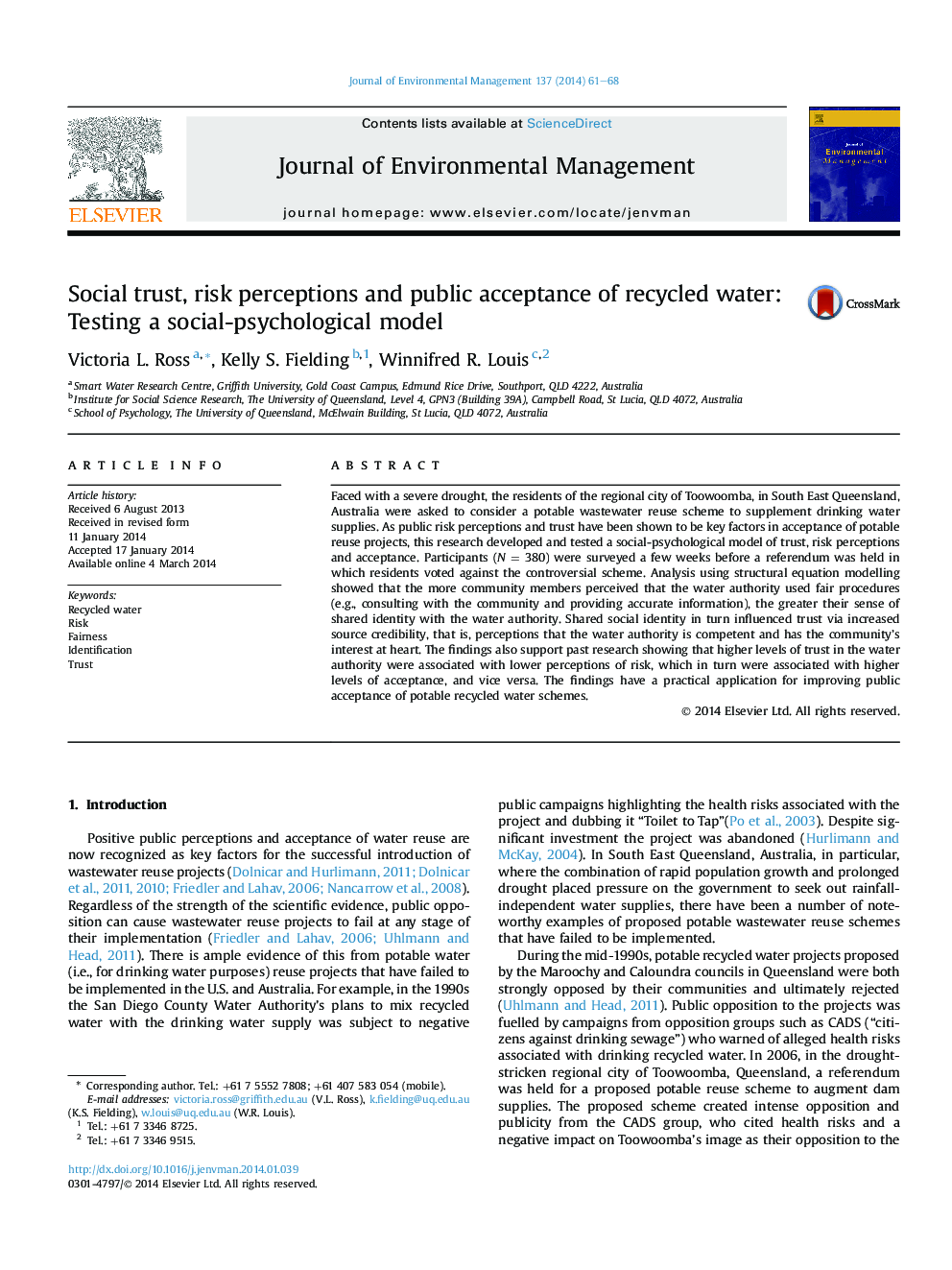| Article ID | Journal | Published Year | Pages | File Type |
|---|---|---|---|---|
| 1055727 | Journal of Environmental Management | 2014 | 8 Pages |
•A model of public trust was tested on a proposed recycled water scheme.•Fair procedures increased the sense of shared identity with the water authority.•Greater identification increased perceptions of credibility and thus trust.•Higher levels of public trust led to lower risk perceptions.•Lower risk perceptions led to greater public acceptance of the scheme.
Faced with a severe drought, the residents of the regional city of Toowoomba, in South East Queensland, Australia were asked to consider a potable wastewater reuse scheme to supplement drinking water supplies. As public risk perceptions and trust have been shown to be key factors in acceptance of potable reuse projects, this research developed and tested a social-psychological model of trust, risk perceptions and acceptance. Participants (N = 380) were surveyed a few weeks before a referendum was held in which residents voted against the controversial scheme. Analysis using structural equation modelling showed that the more community members perceived that the water authority used fair procedures (e.g., consulting with the community and providing accurate information), the greater their sense of shared identity with the water authority. Shared social identity in turn influenced trust via increased source credibility, that is, perceptions that the water authority is competent and has the community's interest at heart. The findings also support past research showing that higher levels of trust in the water authority were associated with lower perceptions of risk, which in turn were associated with higher levels of acceptance, and vice versa. The findings have a practical application for improving public acceptance of potable recycled water schemes.
